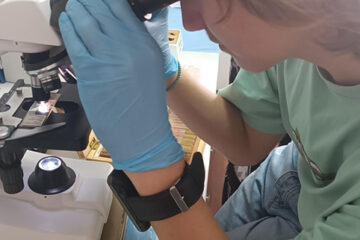How students become more resilient and able to thrive during times of adversity
Published by TLC Private School on
We were delighted to welcome our students back to school and the ‘physical learning environment’. We were a little concerned how they would adapt, adhering to the Ministry of Education’s directive of maintaining 1 metre distancing, receiving temperature checks on arrival and the regular sanitising of hands but, as children often do, they demonstrated adaptability and resilience and seemed unfazed by the new measures, even secondary students who had to wear masks in temperatures above 40 degrees.
When the Cypriot government announced school closures from 13 March, TLC Private School implemented its Continuous Learning Programme from the 16th, delivering live lessons online.
Whilst this method of learning was not conducive to our early years’ students, many within our learning community embraced new ways of working and developed creative approaches to delivering an online curriculum.
For my part, I enjoyed teaching within the virtual learning environment and felt privileged to be part of a strong team of practitioners delivering a qualification that was new to our students and our school. When Pearsons Edexcel introduced the Extended Project Qualification Express, we felt this would provide students, who had been unable to sit exams, with an additional qualification and skills that extend beyond the curriculum.
These six months have seen students from across the world experiencing disruption to their education. As with any period of uncertainty or adversity, we see people coming together to lend support, we’ve seen resolve and ingenuity towards what may, at first, have appeared insurmountable challenges.
Whilst Cognitive Learning Domain theory, with its emphasis upon the acquisition of knowledge, understanding, application, analysis, synthesis and evaluation will always remain an important part of the curriculum, I would advocate for a greater emphasis upon the Affective Learning Domain; supporting students to expand their awareness of the world and wider environment, becoming motivated students willing to learn with the belief and attitudes that learning is always a journey rather than a destination and that the journey will always contain pot holes to navigate.
Encouraging students to develop a growth mind-set, discussing their learning mistakes on their path to success will enable them to become more resilient and thrive during times of adversity.


